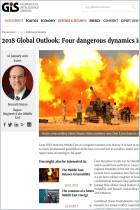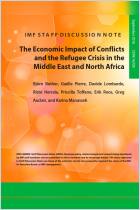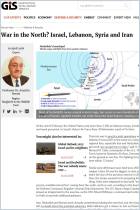Join getAbstract to access the summary!

Join getAbstract to access the summary!
Caroline D. Rose
Lebanon’s Breaking Point
Conditions are ripe for an uprising, which would have profound geopolitical consequences for the region.
GPF, 2020
What's inside?
Lebanon’s collapse could have wide-ranging geopolitical repercussions.
Recommendation
Lebanon has suffered from political instability for decades, but the recent explosion that devastated a large part of Beirut may serve as the proverbial straw that breaks the country’s back. Caroline Rose, who spent some time in the country on a research assignment prior to the explosion, argues that the indirect geopolitical consequences of the accident could be far-reaching. She offers a useful overview of the different foreign powers that will likely take advantage of the situation to increase their regional influence.
Summary
About the Author
Caroline Rose is a researcher at the US think tank Geopolitical Futures.

















Comment on this summary